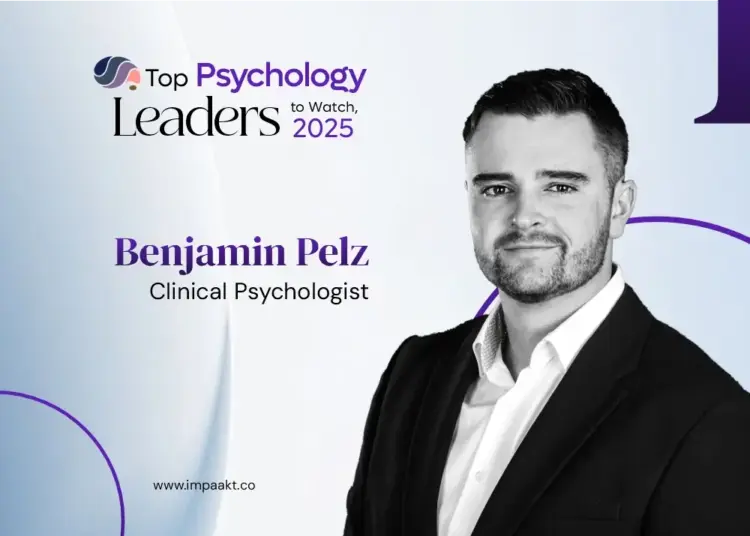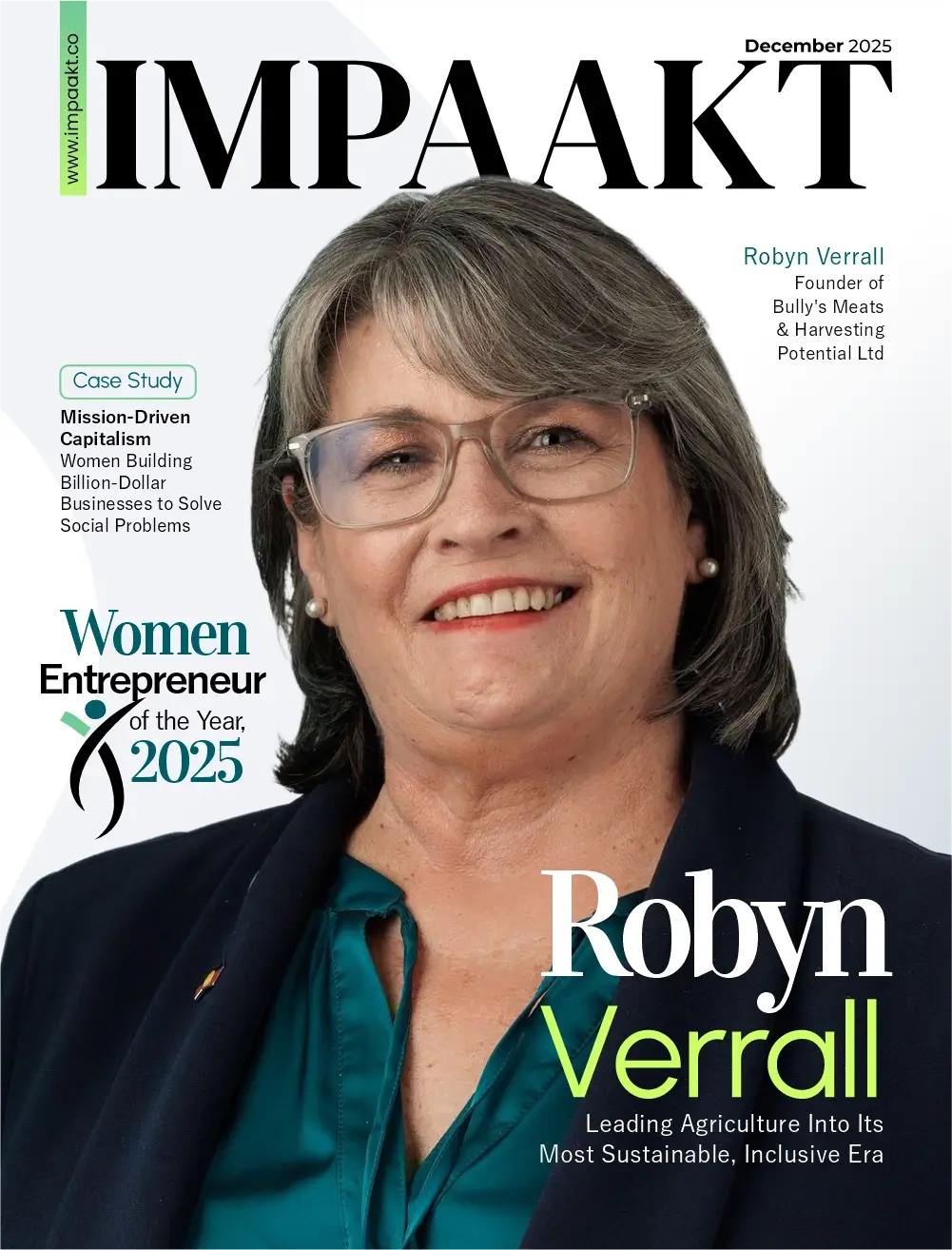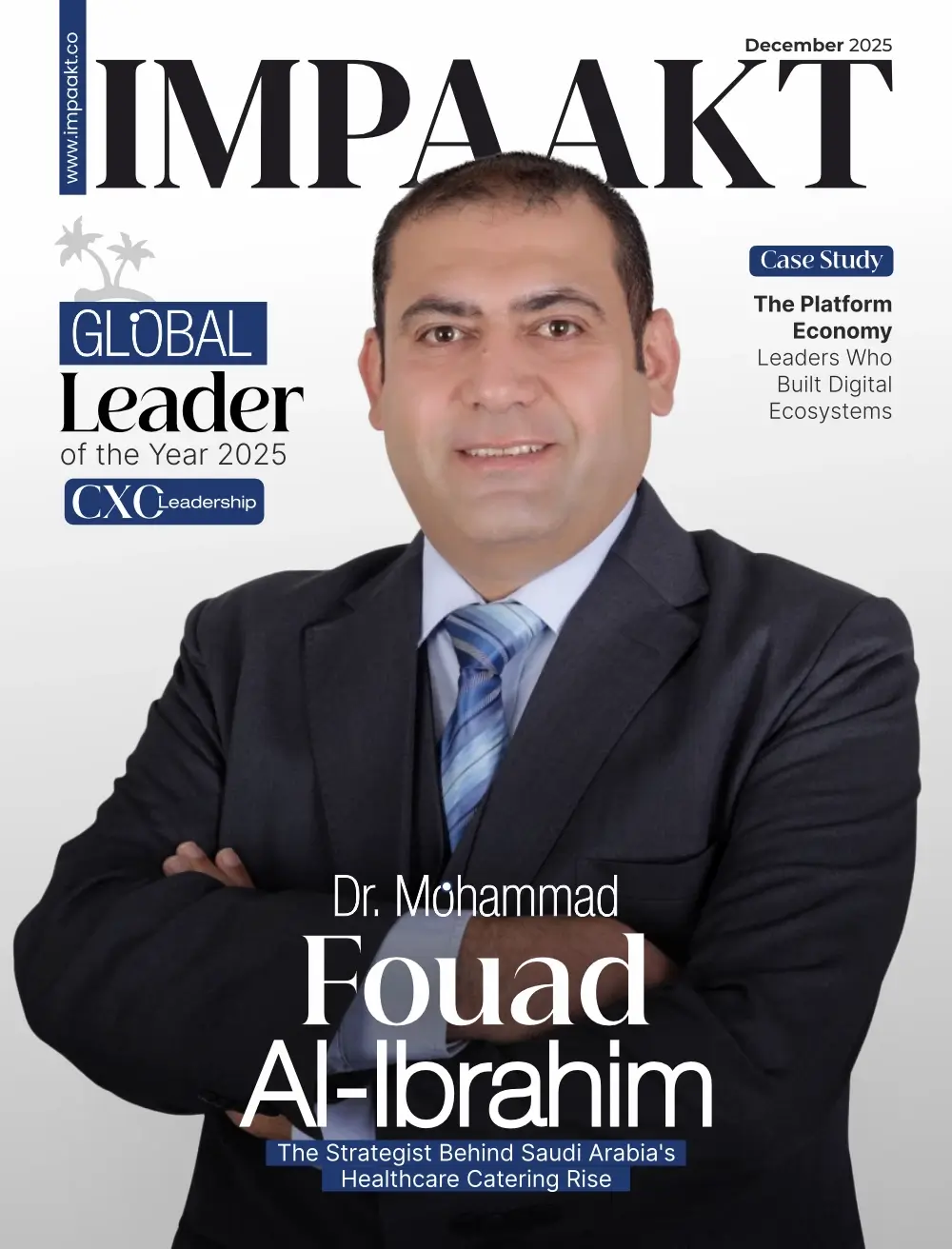There’s a particular kind of pain that comes with doing everything right. The perfect résumé. The impressive career. The kind of success that looks enviable from the outside—yet feels hollow within. A quiet emptiness that no achievement seems to fill. A belief that love must be earned again and again, and that one misstep could expose you as the fraud you secretly fear you are.
Benjamin Pelz sees this pattern every day. As a clinical psychologist at CuraMed Akutklinik Allgäu and Doctoral student at Grand Canyon University, he meets people with credentials that command respect—and an inner world that’s quietly unraveling. They’re trapped in a loop where accomplishment is supposed to prove their worth, but the relief never lasts. The bar just keeps moving higher.
Pelz’s own story gives him a rare lens on this struggle. Once an athlete at the University of Cincinnati and Lubbock Christian University, he learned firsthand how fragile identity becomes when it’s built solely on performance. One injury, one bad season, and suddenly, everything you believed about yourself collapses. That experience planted a seed that now defines his clinical philosophy: success feels better when it’s not carrying the entire weight of your self-worth.
Today, he fuses insights from performance psychology, trauma research, and clinical practice to challenge how we think about healing. He studies how something as simple as posture can influence mood and brain chemistry. He reframes anger not as a flaw, but as protective energy waiting to be directed. And he teaches people that the same mental preparation tools athletes use before competition can help anyone face emotionally charged moments with composure and clarity.
At the heart of it all lies a philosophy that’s both simple and radical: healing isn’t about perfection or the absence of pain; it’s about building a self sturdy enough to withstand life’s fluctuations. It’s about tuning into your mind and body before they reach a breaking point. Because self-attention, as Pelz reminds us, isn’t indulgence. It’s maintenance.
Curious about how he’s reshaping the conversation around achievement, mental health, and what it really means to heal, we sat down with Benjamin Pelz to explore the ideas driving his work, and why the people who appear strongest often need the most support.
Here are the excerpts from the interview:
Benjamin, you’ve written about self-acceptance using ideas from positive and performance psychology. What was the moment (in your life or in practice) when you realized that healing isn’t just about reducing symptoms, but helping people accept themselves fully?
It was not one moment, but a series of small ones that started in sport and continued in clinical work. As an athlete, I watched my teammates struggle whenever their form dipped or injuries occurred. At the University of Cincinnati, we had conversations about “athletic identity,” the reminder that being an athlete is essential, but it cannot be your entire self. That idea stuck with me because you could see what happened when results defined worth: people became fragile in the face of every setback. Later, in clinical practice, I saw the same pattern around careers. Patients who built their whole sense of self on performance would fall into a deep hole when jobs changed, or they couldn’t meet their own standards anymore. When I studied positive psychology, the concept that resonated most was unconditional self-acceptance—not pretending to be perfect but accepting that you are human and still worthy. It is not a shortcut, and it takes work, but it protects you from tying your value to a scoreboard. Symptom reduction still matters, of course, yet without self-acceptance, it can turn into another way to “earn” your worth. With it, people become more resilient because their identity is wider than their latest result
Your work connects trauma with things like manipulation, control, and power abuse. For someone who has never studied psychology, how would you explain why traumatic experiences sometimes lead people to act in ways that hurt others — and what can help break that cycle?
Trauma is any experience that overwhelms your capacity to cope and leaves the nervous system searching for safety. Flashbacks and nightmares are the body and mind replaying what happened because they’re still trying to make sense of it. When you’ve known helplessness, being in control can feel relief. The more I control my surroundings, the safer I feel from ever being blindsided again. That logic makes sense after trauma, but it can slide into trying to control people, which becomes harmful. None of this excuses hurtful behavior, but it does explain why someone might start pulling strings like a “puppet master” to avoid feeling vulnerable. Breaking the cycle means two things at once: facing the past in a way that feels safe enough and learning to feel safe in the present without controlling everything and everyone. Evidence-based trauma work helps integrate memories without overwhelming you. Body-based skills—breathing, grounding, orienting—teach the nervous system to downshift, so you can choose rather than react. Clear boundaries and accountability matter too; harm has to be named and stopped. Over time, people can learn that protection doesn’t have to mean control, and closeness doesn’t have to mean losing power
One of your studies explores how posture (how we hold ourselves physically) influences mood and even brain chemistry. It sounds almost magical. What made you curious about posture, and what’s a simple takeaway people reading this might try at home to feel a bit better?
My interest stems directly from sports and has been carried over into therapy rooms. In competition, you can’t control the pitch, the bounce, the referee, or your teammates—but you can control your body language. I noticed that when athletes reset their posture—standing taller, with their shoulders open and steady breath—they resettled. In sessions, I observed similar effects: a collapsed posture often narrowed attention and heightened self-criticism. At the same time, a more upright, grounded stance seemed to broaden perspective and quieten the inner voice. We’re social creatures, and we constantly read body language and posture. Think about wolves: even if you know nothing about them, you can often spot the “alpha” and the “omega” by body language alone. We don’t live in packs, but our brains still pay attention to signals of status and safety. To be precise, posture is not a magic trick, and some popular claims (like “power posing” changing hormones in big ways) have been overstated. But posture, breath, and gaze do feed back into mood and arousal through the autonomic nervous system. A simple, practical takeaway is this: when you feel low or rattled, plant your feet, lengthen your spine, let your shoulders drop, soften your gaze, and make your exhale a little longer than your inhale for a minute or two. Even a slight shift can lift your mood a notch and interrupt negative thought loops long enough to give you a steadier next step.
CuraMed Akutklinik Allgäu is set in a natural environment (the Allgäu Alps, etc.). How much does where we heal — the place, surroundings — matter in psychological recovery? Is nature part of therapy itself?
A beautiful setting like the Allgäu Alps makes it easier to feel gratitude and perspective, and that alone can shift mood in a healthy direction. Nature gives you simple, reliable cues—fresh air, horizon, light—that help you settle, especially when you use them for mindfulness or brief moments of appreciation. In a clinic, the change of scenery also carries a clear message to the psyche: you are out of the environment where many of your stressors live, so something different is possible. That distance creates a little space between old triggers and new choices. Our clinic leans into that by offering various kinds of therapy outdoors like Outdoor Fitness, gardening therapy or early morning walks before breakfast. Nature doesn’t replace therapy, but it supports it. It makes it easier to calm down, reflect, and try new patterns.
Performance psychology often pushes people to achieve, optimize, and excel. Clinical psychology often focuses on suffering and healing. You bridge both. How do you help people keep doing well-being work without turning it into performance pressure?
I actually see a lot of pressure in clinical settings—sometimes more subjectively than in sport or business. Pressure isn’t only about a championship match or a quarterly target; pressure can be sitting across from your parents to talk about your childhood or telling your partner that this relationship does not fulfill you anymore. If we define pressure as a subjective feeling of threat or stakes, many of my clinical patients feel it intensely and often. That’s exactly why techniques from performance psychology are so valuable in therapy. Imagery, pre-performance routines, breathing, attentional control—these tools help people meet emotionally loaded moments with a steadier nervous system and a clearer plan. The key is intent. In sport, visualization can be about perfect execution. In therapy, visualization is about rehearsing courage and regulation: seeing yourself have the conversation, feeling your feet on the ground, hearing your voice stay calm, and picturing the moment after it’s done so your body learns that you can do it. I try to frame all of this as support, not as another standard to meet. The patients decide what their “Super Bowl” looks like, and we can work on preparing for that.
When you listen to people in therapy, what kinds of stories tend to show up again and again — and is there one that surprised you, maybe because it challenged what you expected?
The theme I hear most often is that love is felt conditional and has to be earned. It often appears in highly accomplished individuals who, on paper, seem to be doing everything right, yet often feel unworthy, depressed, and chronically dissatisfied. When love was contingent early on—be perfect, be quiet, be useful—that message doesn’t disappear once you start achieving. Success becomes a way to fill a hole rather than a source of joy, and the bar keeps moving. This doesn’t surprise me, given my own experiences in sport, where results easily become a proxy for worth, but it still hits me every time a patient with an incredible CV sits down full of doubt. The work is to separate value from performance, to let success be meaningful without making it the only proof that you deserve to be here.
What’s a common thing people believe about therapy or mental health that actually makes recovery harder — maybe a myth you wish more people would let go of?
I wish more people understood that anger is a natural emotion, not a character flaw to be suppressed. Many of my patients equate anger with violence, aggression or losing control, often because they’ve been on the receiving end of someone else’s unmanaged anger. If we define anger as a felt sense of injustice or a perceived boundary violation, trying to suppress it tends to backfire—both psychologically and physically. Suppressed anger leaks out as resentment, depression, or somatic complaints; it doesn’t disappear just because we don’t talk about it. I encourage patients and colleagues to treat anger like an energy source that needs direction, not an enemy to defeat. One of my favorite lines from a professor in college was, “Anger is like a nuclear power plant; you either use it, or you let it implode you from within.” The therapeutic task is learning to recognize anger early, name it accurately, and express it in forms that are constructive. That might mean speaking up clearly, setting limits, or channeling the activation into movement before a conversation. The goal isn’t to “never feel angry”; it’s to feel ways to express it without harming others or yourself.
In 10 years, how do you hope psychological care has changed—especially in places like clinics, hospitals, or for people who can’t access therapy easily?
I hope stigma continues to fall so reaching out feels ordinary, not exceptional. I want to see tighter connections between different psychological disciplines and with medicine, so people don’t have to navigate a maze to get help. I especially hope more men find pathways into care that fit them. In most Western countries, roughly 75–80% of suicide deaths are among men; that has to change. Part of the answer is cultural—broadening our ideas of strength and creating male-friendly entry points to therapy—and part is structural, making support easier to access early, before a crisis. I’m optimistic about the potential of AI and virtual therapy to increase reach. If we as practitioners get this right, help will be available in multiple formats and languages, so anyone brave enough to seek help can actually find it.
If you could leave one idea in people’s minds — one lasting thing you really want people to remember about Benjamin Pelz’s work — what would it be?
If there’s one practice I want people to adopt, it’s to check in with themselves every day. I often tell patients as they leave the clinic: the best way not to have to see my office again is to ask yourself daily how you truly feel. If you’ve been feeling off for more than three days, pause and ask what’s pulling you down and what small thing you can change. It sounds simple, but listening to your body and mind early prevents a lot of suffering later. Many of the people I see might not have needed clinical care if they had taken their signals seriously sooner. Self-attention isn’t self-indulgence; it’s maintenance. And it’s the foundation for any lasting change.











